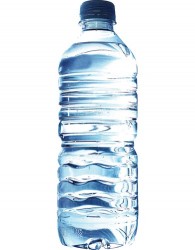By: Chiro One Wellness Centers
 In the darker winter months—and year round, really—everyone can benefit from eating lots of brightly colored foods, including fruits, vegetables and dark leafy greens, and cutting back on junk food, coffee and alcohol. Chiro One Wellness Centers recommend the following top ten vitamins and supplements to help counteract the common (and not-so-common) effects of winter:
In the darker winter months—and year round, really—everyone can benefit from eating lots of brightly colored foods, including fruits, vegetables and dark leafy greens, and cutting back on junk food, coffee and alcohol. Chiro One Wellness Centers recommend the following top ten vitamins and supplements to help counteract the common (and not-so-common) effects of winter:
10. Biotin. While technically classified as vitamin B, this one is all cosmological. Brutal winter air can bring hair, skin, and nail problems. Biotin can also have enormous benefits for pregnant women and diabetics.
9. Vitamin A. This vitamin, like others, has valuable antioxidant qualities. Vitamin A helps your eyes adjust to different levels of incoming light, and with unpredictable winter driving weather, top-notch vision could never hurt.
8. Magnesium. Cold months and dry air can lead to stress and dehydration, which can lead to headaches and even migraines. Magnesium deficiency has recently been “uncovered” as a possible underlying cause of certain kinds of headaches.
7. Fish oil. A lack of outdoor exposure can often lead to a lot of brain fog and concentration problems. Fish oil can help you concentrate and stay on task.
6. Vitamin B-12. The cold, cloudy winter months can often lead to signs of depression and anxiety, and even the disorders themselves. B12 is one of the first vitamins depleted during times of depression and anxiety.
5. Vitamin D. Needless to stay, for a lot of us, winter brings some pretty dreary weather. Sometimes you may not see the sun for weeks at a time. Since vitamin D is relayed through sunlight, northern residents don’t get a lot of it.
4. Calcium. Not getting the usual amount of exercise during the winter can lead to muscle weakening. When our muscles aren’t up to par, more pressure is exerted on our bones.
3. Vitamin C. Although other forms of immunity are emerging as effective, vitamin C is still crucial in the cold/flu season battle. Drink pure fruit juices, many of which contain 100 percent of your daily vitamin C requirement in a single glass.
2. Water. OK, so it’s not technically a vitamin. However, increased time indoors goes hand-in-hand with the arrival of winter, and indoors usually involves turning up the heat. What goes hand-in-hand with “faux” indoor heating? Dry skin and chapped lips, which many times represent dehydration. That pound of lotion and chapstick you’re using every day may only be covering up the underlying cause.
1. Zinc. The closest you can get to a “magic” vitamin during cold and flu season. Not only does Zinc boost your immunity, but it has been proven to shorten a cold when you already have one.
Note: As always, check with your doctor before starting any vitamin or supplement regimens. Everybody reacts differently to different treatments and should check with a professional to determine dosage amounts.








